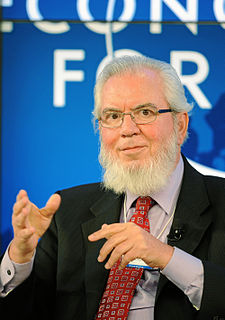A Quote by Milton Friedman
Germany cannot get out of the euro. What it has to do, therefore, is make the economy more flexible - to eliminate the restrictions on prices, on wages and on employment; in short, the regulations that keep 10 percent of the German workforce unemployed.
Related Quotes
Nearly one billion women and men, a third of the world's workforce, are either unemployed or unable to earn enough to keep themselves out of extreme poverty. There are 100 million new entrants into the labour market each year. Up to 90 percent in some regions are in the informal economy. 180 million kids are engaged in the worst forms of child labour. Put it all together and it is not only morally unacceptable, but politically dangerous
If we want to make the most of half of our workforce, if we want to eliminate the gender pay gap and we want that same half of the workforce to succeed in jobs that boost our economy, we must make sure that teenage girls don't feel, and are certainly not told, that certain subjects are the preserve of men.
Health insurance in Germany continues with no change if you lose a job. We do know very well that people who become unemployed are at an increased risk of becoming ill, and therefore becoming unemployed is about the worst time to lose health insurance. So therefore, everyone who loses a job remains in exactly the same insurance system he is in.
I don't know why anybody would come to Ireland chasing a dream or even employment - that's an extraordinary thing for a place where traditionally one was unemployed. For 10 years, people were coming from all over the world looking for employment here, kind of an extraordinary phenomenon. That's stopped now.





































